Posted on 10/26/2023
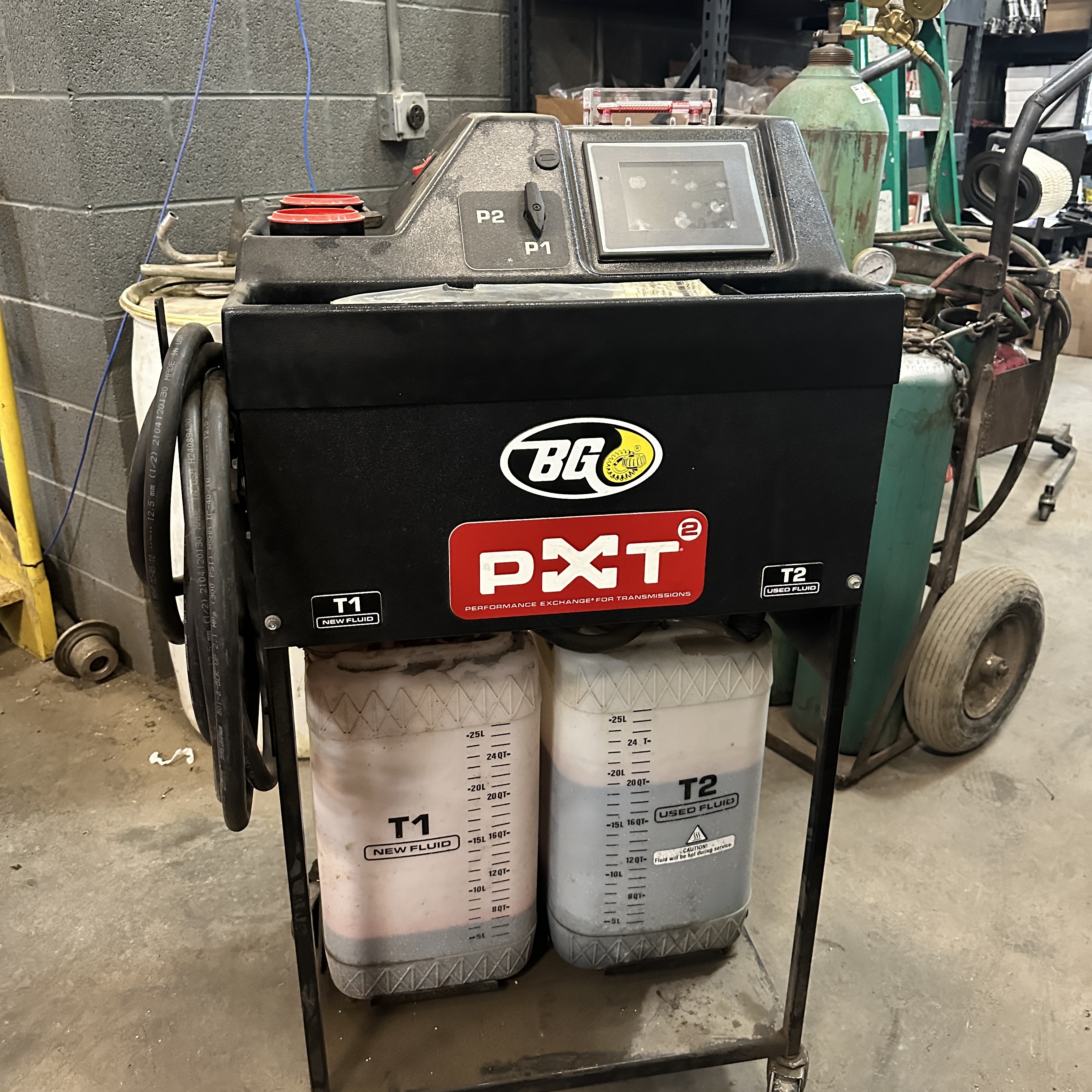
What Is The Difference Between A Transmission Change And Flush? A more traditional and less aggressive approach is a traditional Transmission Change, this includes the old transmission fluid to be drained, and new fluid is added. A transmission flush typically involves using a machine to pump new transmission fluid into the system while simultaneously flushing out the old fluid, and it may help clean the transmission and extend its lifespan, as it removes a higher percentage of the old fluid and all debris(contaminants). How Much Does It Cost To Change Transmission Fluid? The cost of changing transmission fluid can change significantly based on several factors unique to your vehicle, including the make and model of vehicle, the type of transmission fluid needed, where you have the service done. On average, a transmission fluid change can cost anywhere from $75 to $250, and this includes the fluid/filter and the tools/labo ... read more
Posted on 10/4/2023
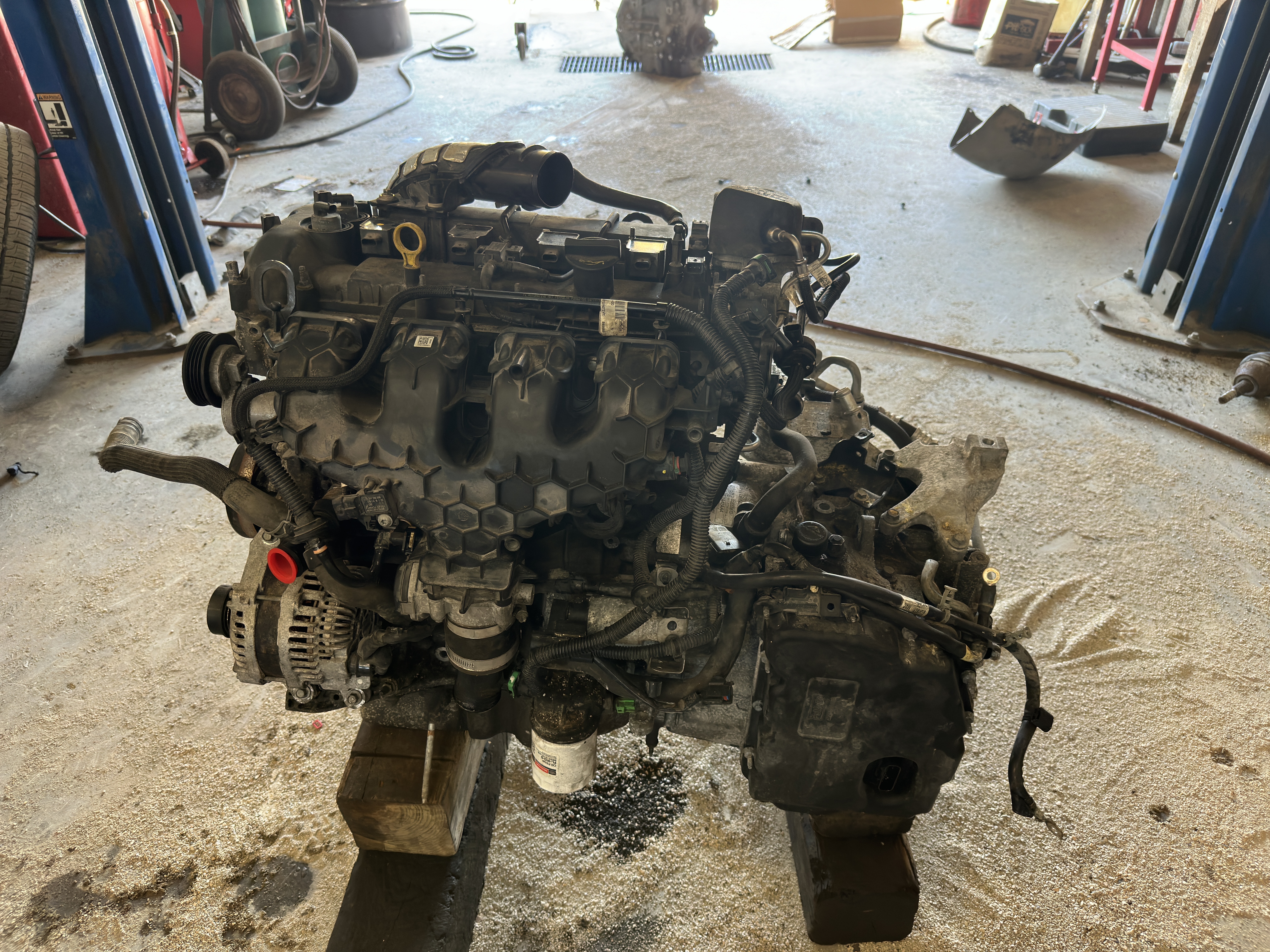
Engine Knocking or Pinging, Excessive Smoke, and the usual Loss of Power and Performance are some things that you should watch out for when considering if your engine needs replacing. Ultimately, it's essential to make an informed decision and weigh the costs and benefits of engine replacement versus purchasing a new vehicle. Whether you should or shouldn’t replace your engine depends on the severity of the issues, the age and value of your vehicle, and your budget. If you're uncertain about the condition of your engine or the extent of the damage, bring your vehicle in to our shop, and one of our qualified and certified mechanics will provide you with an extensive inspections. It takes a considerable amount of time to replace a car engine, it can vary significantly depending on several factors, including the make and model of the vehicle, the level of expertise of the mechanic, and/or whether any complications or additional repairs are needed to finish the repair ... read more
Posted on 9/20/2023
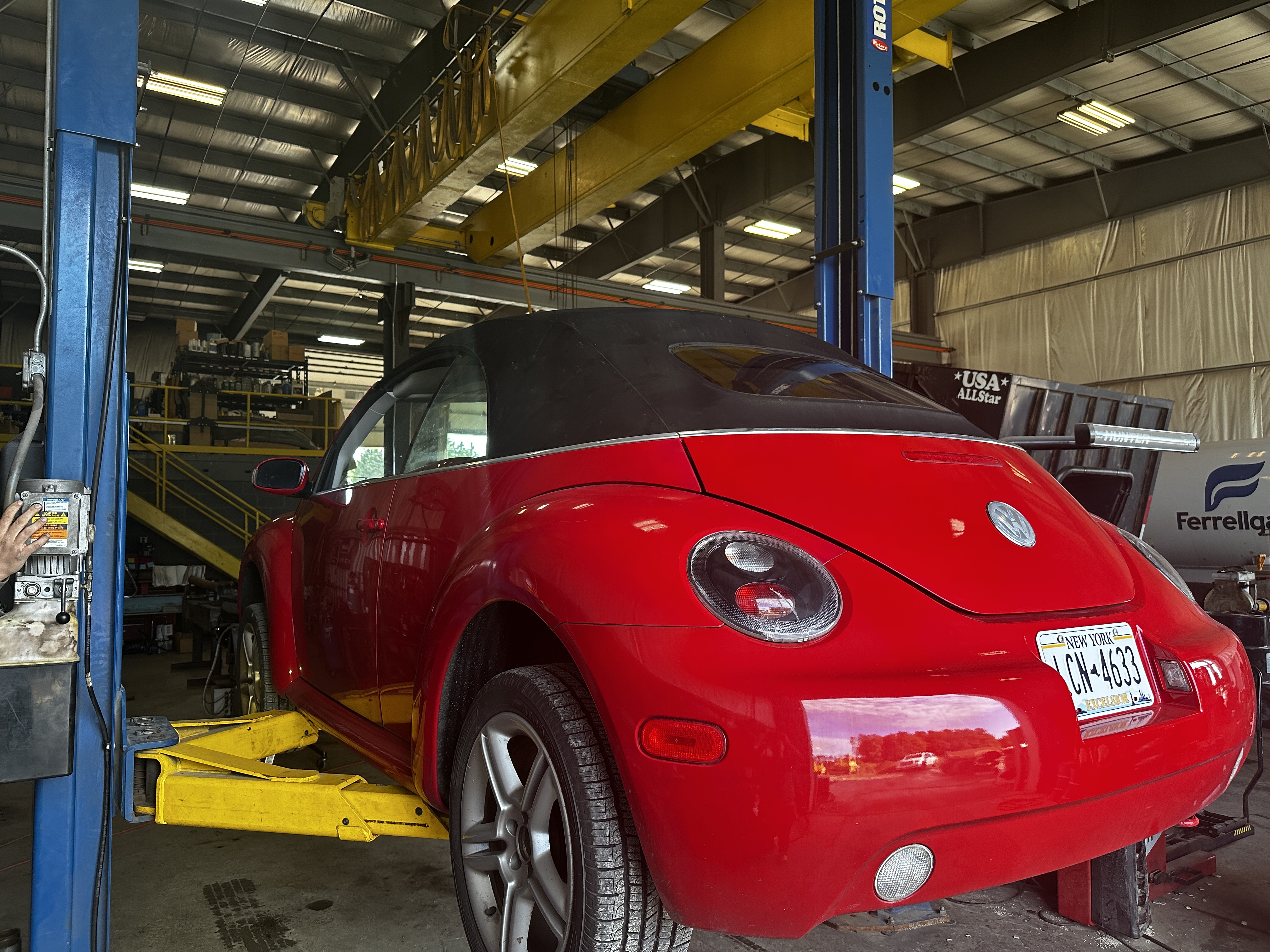
The first signs of bearing failure are unusual noises coming from the bearing such as grinding, squeaking, or rumbling sounds. These noises often indicate that the bearing is experiencing increased friction and wear. Another, but more dangerous sign when the bearings are worn or damaged as it may cause increased vibration due to the imbalance or misalignment they create. This is dangerous and it is vital to catch bearing problems early to prevent more extensive damage to your vehicle. Driving a car with a bad wheel bearing is not recommended and can be dangerous. A wheel bearing plays a critical role in the safe operation of a vehicle. It allows the wheel to rotate smoothly while bearing the weight of the vehicle. When a wheel bearing is damaged or fails, it can lead to several problems and safety hazards. These hazards include reduced control, uneven tire wear, and in the worst possible case wheel separation. Given these safety risks, it's crucial not to drive a ve ... read more
Posted on 6/21/2023
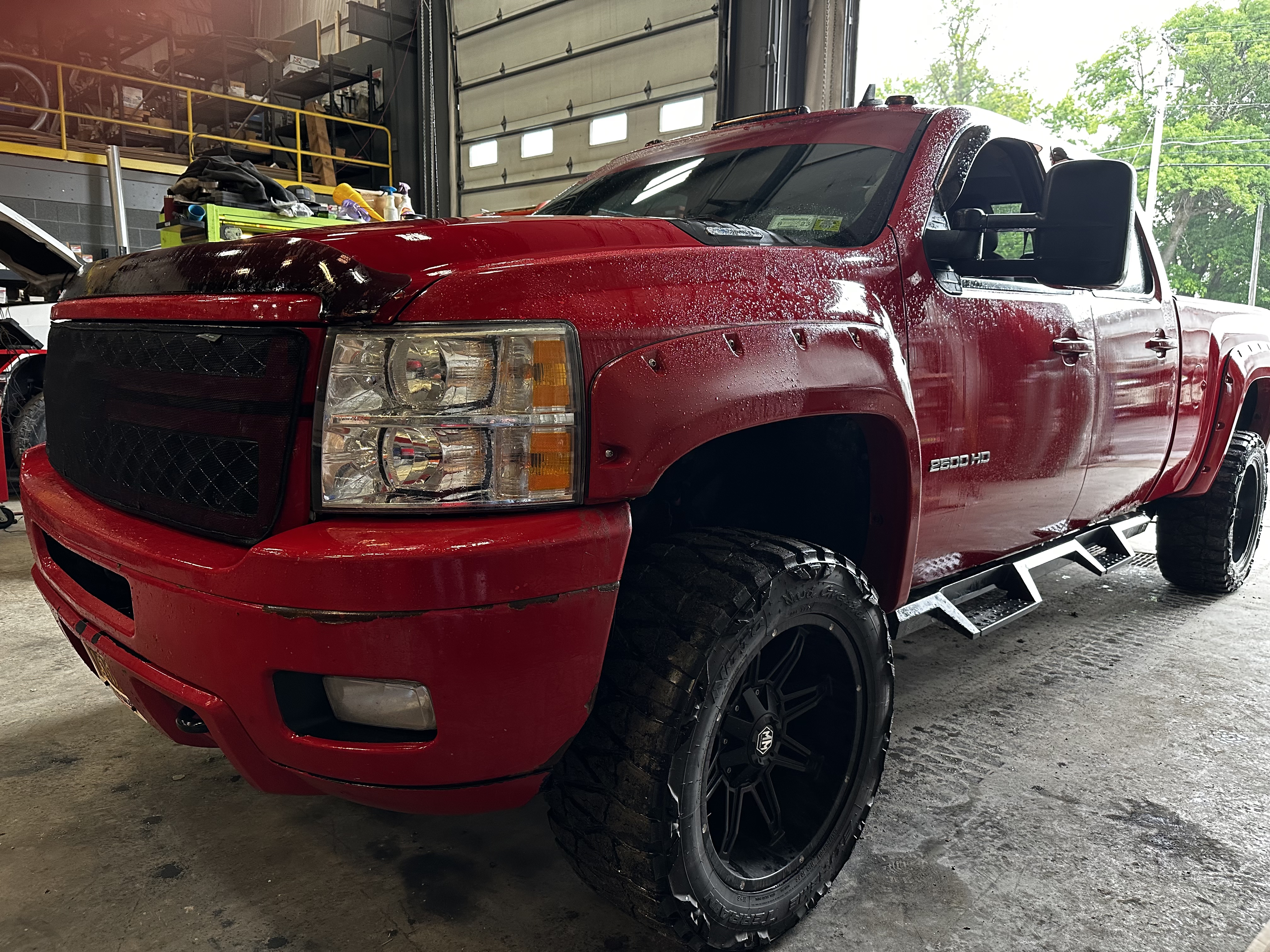
Why Does My Car Make A Noise When I Turn? Do you hear a whining or squealing noise when you turn the steering wheel? This usually is a problem with the power steering system. Factors Like low power steering fluid, a worn-out power steering pump, or a faulty belt can cause noise during turns. Tires may also be a factor in hearing noise whilst turning, Uneven tire wear, improperly inflated tires, or a misalignment can lead to these noises. Tires with uneven tread patterns may even produce a humming or thumping noise. The Noises you hear could be a suspension issue; one may ask, “How To Know If My Suspension Is Bad”? If You’re Experiencing things like a Rough or Bumpy Ride, or Hearing Unusual knocking, clunking, or creaking noises coming from the suspension while driving over bumps or during maneuvers then yes, these are key symptoms of a bad suspension. With this Knowledge, any of us may ask ourselves, “Does My Suspension Need To Be Replaced?” U ... read more
Posted on 6/13/2023
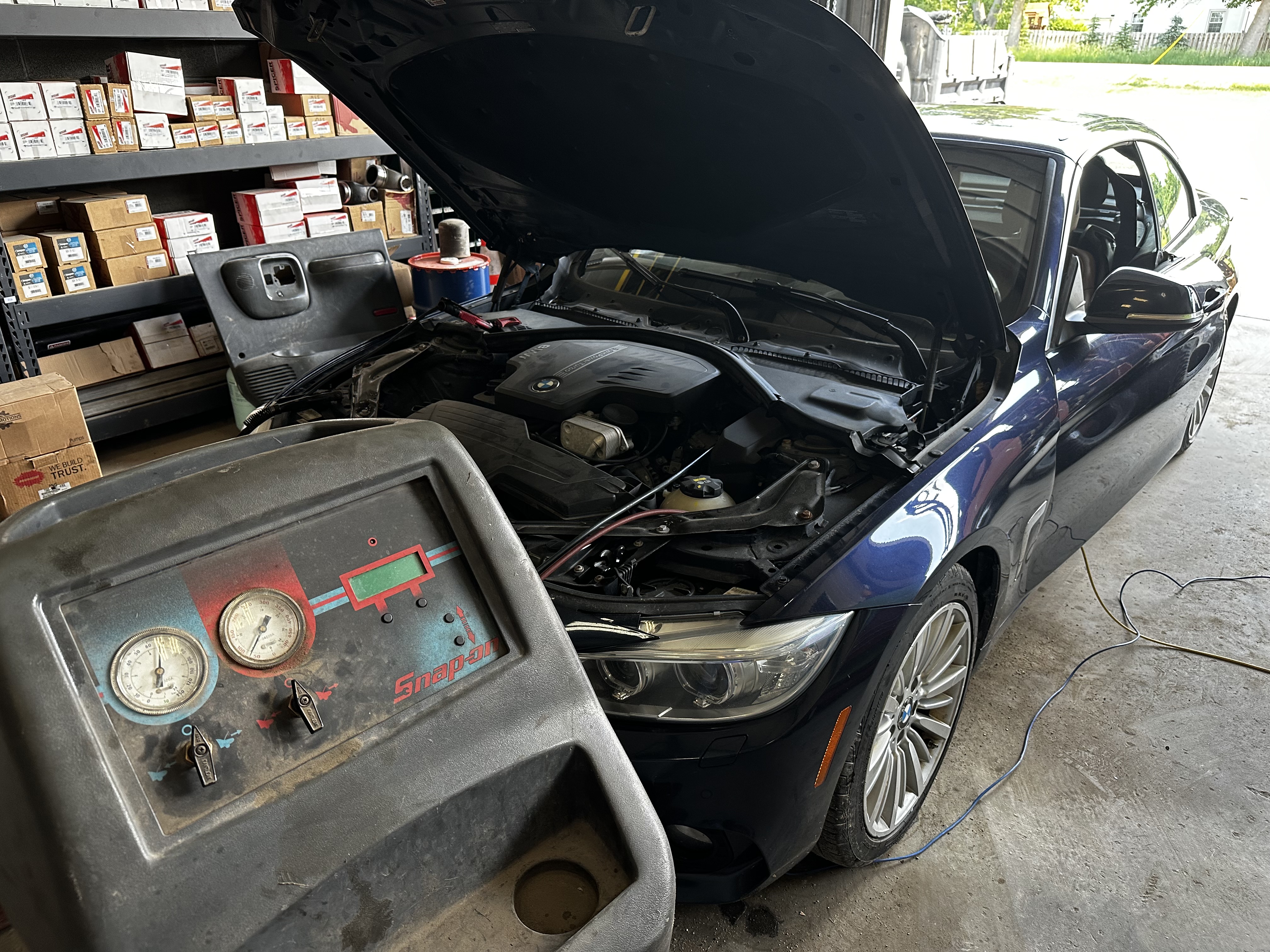
“Why Is the AC In My Vehicle Not Cold?” If your vehicle is AC is not blowing Cold Air, you probably are experiencing a cooling fan problem, a clogged filter, or even radiator trouble, but the most common is a refrigerant leak. If the AC system has a refrigerant leak, it means the refrigerant fluid instantly evaporates when it meets the air. “Why is the AC in my Vehicle Blowing Hot Air?” The AC in your vehicle may be blowing hot air due to various issues. Again, a refrigerant leak is the most common cause, as it prevents the system from producing cold air, or a malfunctioning compressor, which pressurizes and circulates the refrigerant, also resulting in hot air. Problems with the condenser, responsible for releasing heat from the refrigerant, may lead to insufficient cooling. After looking into your vehicle’s problems, most people come across this question, “Does My Vehicle AC Need to Be Recharged?” The most common signs that you m ... read more